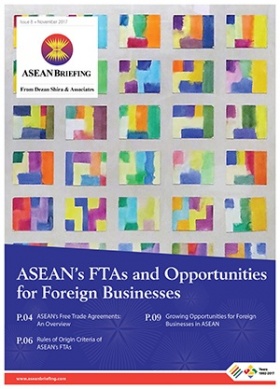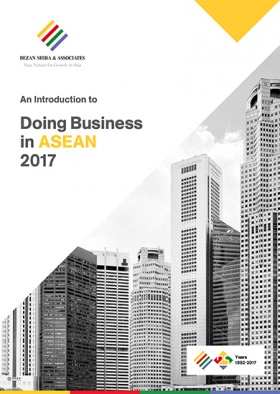Myanmar’s Investment Outlook for 2018
By: Vasundhara Rastogi
Myanmar is among the fastest growing economies in Southeast Asia with significant market potential for the growth and expansion of foreign companies. Some of the strategic advantages that the economy offers include its large youthful population and workforce, its low-cost base, natural resources, and its strategic location between two of the largest economies in the world – India, and China. The country, in 2017, recorded a growth rate of 6.3 percent. Albeit relatively slow, the economy remained strong and steady.
![]() RELATED: Pre-Investment and Market Entry Advisory from Dezan Shira & Associates
RELATED: Pre-Investment and Market Entry Advisory from Dezan Shira & Associates
Economy
Myanmar has an abundance of natural resources with oil and natural gas being its chief export item. Some of the other productive segments of the economy include mining, manufacturing, agricultural processing, and construction. Foreign investment is largely channeled into telecommunications, oil and gas, and manufacturing.
Myanmar also has a large service sector which accounts for about 46 percent of gross domestic product (GDP), whereas industry and agriculture account for 28 percent and 26 percent of GDP respectively.
The Asian Development Bank estimates Myanmar’s economy to expand by 7.7 percent in financial year (FY) 2017-18 and 8 percent in FY2018-19.
Government initiatives
In 2011, Myanmar transitioned into a partly civilian parliamentary form of government, embarking on a period of economic liberalization, privatization, and regional integration. Since then, the government has introduced a slew of policy measures aimed at attracting foreign investment and improving the country’s business environment.
In 2012, it established a managed float of the Burmese Kyat to stabilise the currency, and re-wrote the country’s foreign investment law; granted operational independence to the central bank, and enacted a new anti-corruption law in 2013; and granted licenses to nine foreign banks in 2014, and an additional four foreign banks in 2016.
To create a more enabling business environment in the country, the government, in 2017 announced the passage of the Myanmar Companies Law, which assumes international best practices on company formation, business registration process, corporate governance, and puts foreign investors on a more level footing with local companies. It gives foreign investors an opportunity to buy shares in a domestic company. The change in the foreign company definition unlocks huge business potential in areas that were previously restricted to foreign investors. It not only simplifies the procedures of incorporating a business in Myanmar but also significantly reduces the cost. The new law is set to be implemented by August 2018.
In addition, the government revised Myanmar’s Investment Law that serves to bring the country’s investment law under one regulatory roof by combining the Myanmar Citizen Investment Law and the Myanmar Foreign Investment Law. The law allows FDI in the form of 100 percent foreign ownership or joint ventures in manufacturing, services, infrastructure, and retail. It also offers tax incentives, tax holidays, and certain exemptions to foreign establishments in the first three to seven years of operations. The level of exemption depends on the type of business and its location.
 RELATED: Myanmar’s New Companies Law
RELATED: Myanmar’s New Companies Law
Outlook 2018
Despite the fallout from the humanitarian crisis looming over the country and investors perception of slowing reforms, Myanmar’s economy continues to show a promising trend. According to the Myanmar Investment Commission, inward FDI grew in 2017-18 – the country received more than 6.76 trillion kyat (US$5 billion) of foreign investment up till the third week of December 2017, which is well ahead of the government’s US$6 billion target. With new reforms taking effect, the investment climate in the country is expected to improve, encouraging stronger FDI inflows in 2018, and help broaden investment into more sectors of the economy.
About Us
ASEAN Briefing is produced by Dezan Shira & Associates. The firm assists foreign investors throughout Asia and maintains offices throughout ASEAN, including in Singapore, Hanoi, Ho Chi Minh City and Jakarta. Please contact us at asia@dezshira.com or visit our website at www.dezshira.com.
- Previous Article French FDI in ASEAN Part I: Singapore, Malaysia and Vietnam
- Next Article French FDI in ASEAN Part II: Thailand, Philippines and Indonesia











